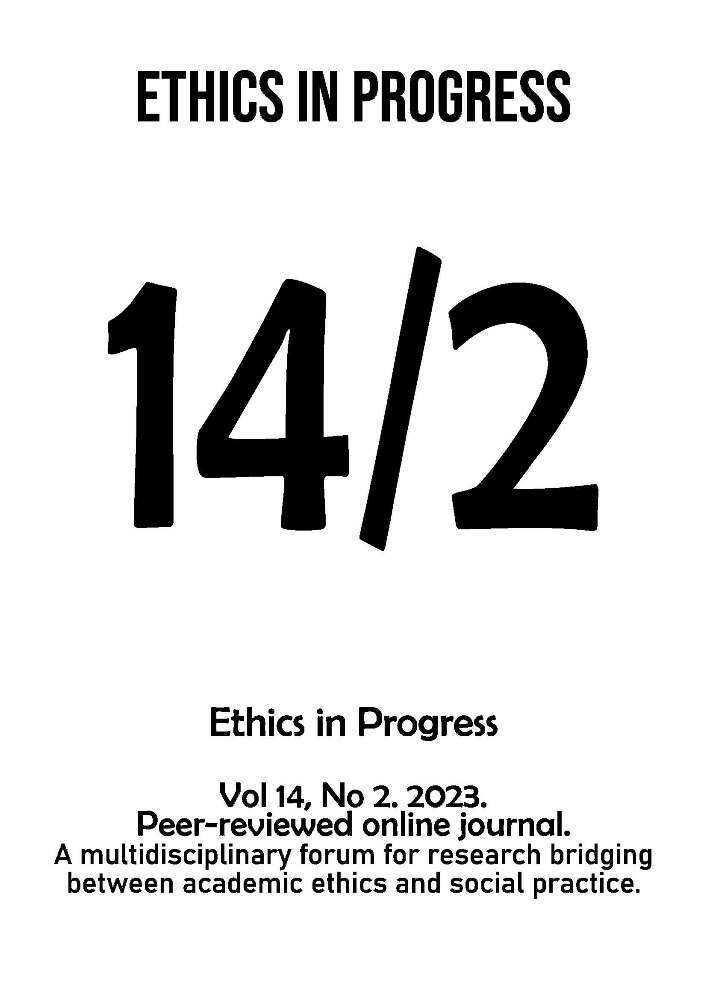Abstract
The article will present the main assumptions of the information marker method, which can be used for recognizing the characteristics of conspiracy theories conveyed in the content of informational messages – texts, statements, recordings, etc. The proposed method draws on the conspiracy thinking model CONSPIR (Lewandowsky & Cook 2020) and has a practical component. However, the technique presented in the paper constitutes a modification and addition to the original proposal. First, it deals with a problem frame that is different from that of CONSPIR, since it is applied to formulated information messages. Hence the marker method is not an instrument for analyzing cognitive attitudes or patterns of conspiracy thinking. Secondly, the proposed tool is profiled in terms of content focused on scientific issues (mainly pertaining to the natural and applied sciences). Third, given the characteristics and structure of the communication under consideration, I replace the widely used term “conspiracy theory” with the more universal concept of “conspiracy narrative,” which seems to reflect more adequately the specific features of such information messages. Fourth, given the more specific purpose of the marker method compared to that of the CONSPIR model, I will try (where possible) to refrain from citing specific examples of conspiracy narratives, referring to singular events and personal examples. Consequently, to use a phrase widely used in methodology, the presented technique can be applied to all cases of a given type.
References
Aldawiri M. & Alwahedi A. 2018, “Detecting Fake News in Social Media Networks,” Procedia Computer Science 141:215-222.
Axelsen J. E. & Emberland T. 2020, What Is a Conspiracy Theory? Available online at: https://www.sv.uio.no/c-rex/english/groups/compendium/what-is-a-conspiracy-theory.html (accessed August 9, 2023).
Bevernage B. 2022. “Denial in the Age of Apology: Some Reflections on Recent Trends in Historical Denialism,” South Central Review 39(2-3):44-59.
Boruszewski J. 2012. ”Jakość i wiarygodność informacji w infobrokerstwie” [Quality and reliability of information in infobroking], Lingua ac Communitas 22:241-250.
Brotherton R. 2011. “Towards a Definition of ‘Conspiracy Theory’,” PsyPag Quarterly 88(3):9-14.
Byford 2011. Conspiracy theories: Acritical Introduction. London: Palgrave Macmillan.
Chavalarias D., Bouchaud P., Chomel V., & Panahi M. 2023. “The New Fronts of Denialism and Climate Scepticism,” HAL Open Science, ID: hal-04103183v2. Available online at: https://hal.science/hal-04103183v2/file/CNRS_Climatoscope_Study_Extended.pdf (accessed August 9, 2023).
Clark S. 2002. “Conspiracy Theories and Conspiracy Theorizing,” Philosophy of the Social Sciences 32(2):131-150.
Congress of the United States of America 1890. Sherman Anti-Trust Act. Available online at: https://www.archives.gov/milestone-documents/sherman-anti-trust-act (accessed October 1, 2023).
Czech F. 2015. Spiskowe narracje i metanarracje [Conspiracy narratives and metanarratives]. Kraków: NOMOS.
Dentith F. 2014. The Philosophy of Conspiracy Theories. London: Palgrave Macmillan.
Douglas K. M. & Sutton R. M. 2011. “Does It Take One to Know One? Endorsement of Conspiracy Theories Is Influenced by Personal Willingness to Conspire,” The British Journal of Social Psychology 50(3):544-552.
Furnham A. 2013. “Commercial Conspiracy Theories: A Pilot Study,” Frontiers of Psychology 4:379.
Grzesiak-Feldman M. 2016. Psychologia myślenia spiskowego [Psychology of conspiracy thinking]. Warsaw University Editions.
Hofstadter R. J. 1996. The Paranoid Style in American Politics, and Other Essays. Cambridge: Vintage.
Kalichman S. C. 2014. “The Psychology of AIDS Denialism,” European Psychologist 19(1):13-22.
Keeley B. L. 1999. “Of Conspiracy Theories,” The Journal of Philosophy 96(3):109-126.
Kahneman D. 2012. Thinking Fast and Slow. London: Imprint – Penguin.
Klapp O. E. 1982. “Meaning Lag in the Information Society,” Journal of Communication 32(2):56-66.
Knight P. 2015. „Kultura konspiracji” [Culture of conspiracy], in F. Czech (Ed.), Struktura teorii spiskowych. Antologia [The structure of conspiracy theories. An anthology]. Kraków: NOMOS.
Lewandowsky S. 2021 (December). “The Impact of COVID-19,” in Conspiracy Narratives & Disinformation (pp. 11-14). Spotlight. Available online at: https://home-affairs.ec.europa.eu/system/files/2021-12/spotlight_on_conspiracy_narratives_disinformation_122021_en.pdf (accessed August 9, 2023).
Lewandowsky S. & Cook J. 2020. The Conspiracy Theory Handbook. Available online at: http://sks.to/conspiracy; https://skepticalscience.com/docs/ConspiracyTheoryHandbook.pdf (accessed July 24, 2023).
Pipes D. 1997. Conspiracy: How the Paranoid Style Flourishes and Where It Comes From. New York: Free Press.
Popper K. R. 1945 (1st Ed.). The Open Society and Its Enemies. London: Routledge.
Sunstein C. R. & Vermeule A. 2009. „Symposium on Conspiracy Theories: Conspiracy Theories: Causes and Cures,” Journal of Political Philosophy 17(2):202-227.
Wood M. J., Douglas K. M., & Sutton R. M. 2012. “Dead and Alive: Beliefs in Contradictory Conspiracy Theories,” Social Psychological and Personality Science 3(6):767-773.
Zdybel L. 2002. Idea spisku i teorie spiskowe w świetle analiz krytycznych i badań historycznych [The idea of conspiracy and conspiracy theories in the light of critical analysis and historical research]. Lublin: UMCS Editions.
License
Copyright (c) 2023 Mariusz Szynkiewicz

This work is licensed under a Creative Commons Attribution-ShareAlike 4.0 International License.





